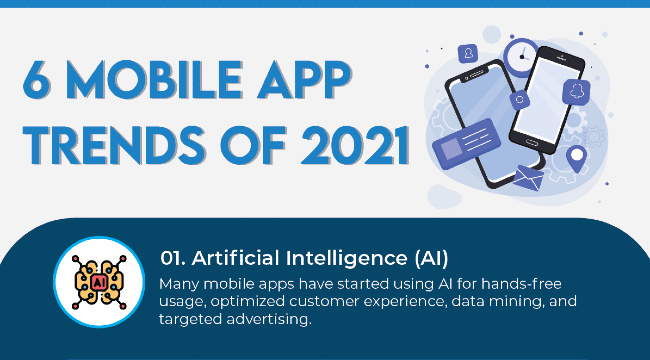
The Types of Mobile Apps and Their Importance in Industries
By, Amy S
- 18 Nov, 2020
- 529 Views
- 0 Comment
Mobile app development has rapidly evolved over the last few years. What started as a few niche games or novelty software developed into technology that combines both form and function. There are now apps for various purposes—tracking storms, ordering food for delivery, and even to monitor the movement of the planets.
Businesses have shifted a large portion of their operational functions on digitization, which is crucial to stay relevant to a world highly technology-dependent. It has created a revolution in the way people consume everything, from food to entertainment to information, and businesses have played along to keep up. In fact, numerous industries have sought mobile app development professionals’ help to create the perfect mobile application to fulfill their customers’ needs.
The Different Types of Mobile Apps
Most app developers are fluent in numerous languages such as JAVA, Objective C, and Swift, allowing them to produce the best versions of an app. However, given the different kinds of applications available, businesses may not know the best one for their needs.
There are three main types of apps: native apps, web-based apps, and hybrid apps. Each has its own set of benefits, allowing industries to offer numerous features to their clients. These apps are incredibly crucial to many industries, so understanding the similarities and differences is essential in determining the type that best suits your company.
Native Apps
Native apps are created by app developers for specific operating systems or platforms, like Android or iOS. These apps must be made with care, as any compatibility issues can tank it immediately. If a developer creates an iOS-based app, then it cannot operate on Android devices without further modifications or programming to make it compatible.
These apps are the highest performing in using the full potential of mobile hardware. If you’re hoping to build an app that offers features that use the camera, GPS, or other similar phone functions, you’ll want a native app.
If you’re in the gaming or video streaming industry, your app will require high-end graphics for it to work smoothly. Native apps work best with this. It’s also recommended for businesses that want to create a social media app, as it offers the ability to take photos and images, upload location tags, and other features.
Web-Based Apps
Meanwhile, building web-based apps needs to adapt to the device used, displaying the same smooth UI, whether on their app or website. The apps are also accessible through a mobile web browser, allowing a seamless experience throughout. For example, applications like Quora offer similar UI across their app and website versions.
The web-based app is a popular choice for businesses that want their application to be a one-stop resource for all platforms and devices. Mobile app development companies use languages like HTML5 and JavaScript to create them. However, web-based apps aren’t as comprehensive and can offer only as many features as a mobile browser.
There are many types of businesses that prefer web-based apps. In particular, startups and SMEs often don’t have a sizeable budget to create different versions of the same app. Specific social media companies also rely on web-based apps as they want as many people to access it at their convenience.
Hybrid Apps
Lastly, hybrid apps combine the best features of web-based and native apps and roll them into one. They act like native apps yet have the seamlessness of web-based apps simultaneously, having compatibility across multiple platforms. These apps can be run on different operating systems like Windows, Android, and iOS while also displaying smoothly on mobile browsers.
Businesses choose hybrid apps if they aren’t interested in accessing every available feature on a mobile device yet would like to offer high-quality UI, like native apps. Popular apps such as Instagram, Twitter, and Gmail are examples of this type of app. Meanwhile, if you’re an eCommerce store that wants an app with more features than a web-based app, hybrid apps are your best bet.
Conclusion
Understanding the different apps will help you determine what your business needs to connect to its customers. Doing so will help you realize the full potential of an application, allowing you to provide better services to your target audience. Now that you know the three types of mobile apps, you can consult an app developer to build the perfect app for you.
Digital Fractal is an app development company in Edmonton that accelerates businesses’ digital transformation. We’ll work closely with you to turn your app development ideas into reality. Schedule a free consultation with us today!
Recent Posts
Category
- Android (10)
- Artificial Intelligence (41)
- Blockchain (2)
- Cyber Security (2)
- Cybersecurity (6)
- Digital Transformation (41)
- Industry News (13)
- Infographics (10)
- iOS (2)
- Mobile App Development (80)
- Software (1)
- Uncategorized (3)
- Web development (11)
- Workflow Automation (3)
All Tag
Archives
- June 2025
- May 2025
- April 2025
- March 2025
- February 2025
- January 2025
- October 2024
- September 2024
- July 2024
- June 2024
- May 2024
- April 2024
- February 2024
- January 2024
- December 2023
- November 2023
- October 2023
- September 2023
- July 2023
- June 2023
- May 2023
- March 2023
- December 2022
- November 2022
- October 2022
- April 2022
- March 2021
- February 2021
- January 2021
- December 2020
- November 2020
- October 2020
- September 2020
- August 2020
- July 2020
- June 2020

